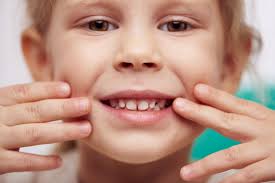Everyone gets their first set of teeth – baby teeth – before they turn one, and we don’t get our permanent adult teeth until around six years old. There’s a lot of living which kids do before they start school, sometimes eating candies and chocolate and drinking fizzy soft drinks. And if they’re not too careful, their baby teeth can get cavities.
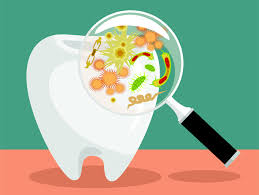
In fact, 60% of people experience some level of baby tooth decay. General tooth decay is actually five times more common than asthma and 20 times more common than childhood obesity. It’s quite a worrying trend.
A lot of parents think that baby teeth will get replaced by adult teeth, so it’s no big deal, right? Why should relatively temporary teeth get treated?
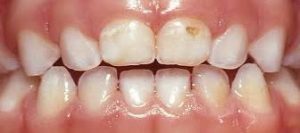
Kinda a Big Deal
Although baby teeth aren’t permanent, cavities in baby teeth can have adverse effects on children if left untreated. It can:
- prevent children’s nutrition intake (as the pain of the tooth could impede on their ability to healthily eat and drink)
- cause immense pain if left untreated (developing into an abscess and swelling)
- cause overbites or other bite misalignments
- hinder adult teeth from growing straight and healthy
- cause difficulties with speech production
- negatively affect their self-esteem (if the tooth decay is visible while the child is talking/smiling/opening their mouths)
- infect neighbouring teeth and spread the infection
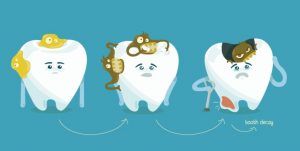
What to Look For
Some common symptoms your child may exhibit if they have cavities could include:
- visible holes, discolourations, white or dark spots on the tooth
- pain when chewing/drinking/brushing their teeth
- pain below the gum line of and/or around the affected tooth
- increased sensitivity to hot and cold (possibly even sweet and sour) foods/drinks
- constant bad breath despite brushing their teeth
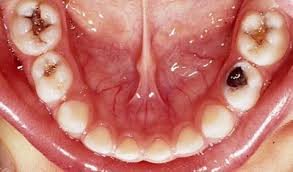
What to Do
Definitely take your child to the dentist to get the cavity treated. The dentist will provide the most appropriate course of treatment as they’ll do an oral exam and possibly take some X-rays to diagnose the problem.
Sometimes the cavity could be incredibly shallow and mild so fillings may not be necessary. Other times, the dentist may recommend fillings or even possibly extraction if the tooth decay is too advanced. In any case, take your child to the dentist for a professional diagnosis and treatment.

How to Prevent Further Tooth Decay
The most obvious solution to prevent tooth decay is to encourage your child to take a more proactive approach with their oral hygiene. Teach them to brush and floss their teeth first, and then you can go over their teeth again afterwards.
Your child can use a children’s electric toothbrush as long as they have soft bristles with a “gentle motion” setting. Otherwise keep using soft-bristled children’s manual toothbrushes.
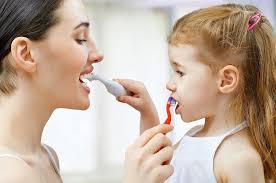
Flosser picks/dental sticks are still an option but as the child grows older, it is important to start encouraging them to use regular floss. Ask your dentist to demonstrate the correct brushing and flossing techniques to your child if they are unsure.
And as mentioned above, take your child to the dentist. Regular checks and cleans with your dentist (once every six months) will definitely improve your child’s oral health. Your dentist will also be able to detect any issues early on, including any gum disease or tooth decay.
